|
British
Columbia Passenger License Plates
|
||||||||||||||||||||||||||||||||||||||||||||||||||||||||||||||||||||||||||||||||||||||||||||||
Quick Links: |
In 2010, ICBC announced that it was going to be updating and modernising its operations as part of what it called its “Transformation Program” (also known as “Transformation 2014”). The new technology that ICBC was investing in would, it was reported, include the introduction of new vehicle registration systems.
Not much attention was given to “Transformation 2014” at the time, after all, what, if anything, is exciting about a new computer system at an insurance company? For those, however, who are interested in these things “Transformation 2014” opened a world of possibilities. The Corporation was still using a registration system created in the 1980s that it had inherited from the Motor Vehicle Branch (MVB) when the two entities were merged in the 1990s. The antiquated nature of this system severely limited the Corporation's ability to innovate and introduce license plate features common in other states and provinces. This included the use of 7-character combinations and maybe, just possibly the replacement of the Social Credit Party's “Spirit Flag” design with something less political and more modern! Recognizing, however, that there is an insanely high failure rate for technology projects (somewhere in the neighbourhood of 70-80%) and that the Corporation has a checkered history with such projects it was almost too much to hope that change would actually occur by 2014 and the exhaustion of the 000-AAA format that same year. And it was. “2014” was quietly dropped from the title of the “Transformation” program and ICBC spent the better part of the next decade slowly rolling out its new technology. Again, for those interested in these things, there was solace in the old refrain that “anything worth having is worth waiting for”. Which is why, as the AA0-00A format introduced in 2014 slowly churned through the roughly 8 million combinations available to be used on BC license plates, excitement began to grow in license plate circles that maybe, finally there would be a transformative change announced in relation to BC plates! In past cycles, the Corporation had begun planning for the transition to a new series 3-4 years in advance of the last plates being issued. For instance, as the AAA-000 series ran out combinations, ICBC began planning the next series in 1997 (for release in 2001). When the 000-AAA series began to run out of combinations, ICBC announced the next series in 2010 (for release in 2014). It was not unreasonable, in 2023, to assume that the Corporation knew what the next series would be as the AA0-00A neared exhaustion in 2025. Would there be 7-characters and a new design? Curiosity led several individuals to submit queries to the media department at ICBC seeking info on what the Corporation's plans were. All of which were rebuffed on the basis that the Corporation had nothing to announce. Surely this could not be the case! Planning for the next series should have already been well advanced by 2023, and it is not like a license plate serial is a state secret requiring special access and clearances! Unless ... there was something really monumental coming down the pipe in terms of changes to the province's license plates! Curiosity got the better of us here at BCpl8s.ca and a Freedom of Information (FOI) request was submitted to the Corporation in September of 2023 requesting the following:
Apparently, an announcement was planned for the Fall of 2024 regarding the new series, which Corporation staff appear to have taken to be justification to ignore statutory requirements under the Freedom of Information and Protection of Privacy Act to respond to a request for records. Obviously, this was a very disappointing course of action from an organization that purports to take rules seriously, be it in honouring the terms of an insurance policy to encouraging motorists to routinely use their “Road Sense” when driving. |
Official Confirmation! |
On June 16, 2025, ICBC officially released a Bulletin (which they back dated to June 9, 2025, being a few days before the new series was spotted on the road) announcing the new A00-0AA serial as well as some other changes! Confirming what had already been spotted in the wild by motorists, the new serial would first appear on the BC Parks Porteau Cove base, with regular plates being switched to the new series by August of 2025. It was also announced that passenger plates will be begin to display some of the forbidden letters first excluded from use back in 1970, namely; 'U', 'Y' and 'Z', which should increase the number of available combinations by approximately 30% (e.g. from 8,000,000 combinations under the 2014 series to 10,400,000 combinations)!
For the hardcore number crunchers amongst us, this means the 'A' block of plates (e.g. “A00-0AA” to “A99-9ZZ”) will likely comprise 450,000 to 475,000 combinations before the 'B' block is issued (likely some time in June of 2026). The Corporation also seems to be unduly fixated on retaining 6-character serials for reasons that are un-clear to us here at BCpl8s.ca. This objective was repeated numerous times in the Bulletin, such as the following statements:
It is also noted that the Corporation only recently “successfully transitioned from seven to eight-digit driver licence (DL) numbers providing more than 240 years of available DL numbers” (in 2023), so is aware of the benefits of adding an extra character to an existing registration serial. On the first point, consider that British Columbia along with Newfoundland are the only provinces in Canada that have not yet moved to issuing 7-character license plates. Even Prince Edward Island (PEI), which registers only 120,000 vehicles a year in comparison to the 2,800,000 vehicles registered annually in British Columbia, has been issuing 7-character licence plates since the 1980s (on its personalized base). On the second point, the AAMVA has consistently advocated for the use of:
While one can read it into this quote what they wish, the more unusual the pattern of letters and numbers on a license plate, the harder it is going to be for people, such as witnesses (pedestrians and other drivers) and law enforcement to recall and report accurately on the number.
Within months, this was quickly walked back after the state started receiving feedback from law enforcement agencies who felt that a What this meant is that, instead of 350 million possible On the final point, it has long been known that the computer system ICBC inherited from the Motor Vehicle Branch (MVB) - when the former was rolled into the Corporation in the 1990s - was a major impediment to modernizing the issuance of license plates. The same is true in Newfoundland where the computer system used by that province's Motor Registration department dates to 1984 and, as a result, “is so old that the staff can’t make it happen” (“it” being anything new). The Corporation's so-called “Transformation 2014” (or “Transformation Program”) detailed at the top of this page was supposed to have solved the information technology issues preventing the issuance of 7-character plates. The 2013 Request for Quotations (RFQ) to manufacturers interested in supplying the province with license plates hinted at this (12 years ago!!), stating the size and design of license plates was to accommodate the following:
As we here at BCpl8s.ca have suspected for a long-time, the underlying problem preventing the move to 7-character plates (and other plate innovations) can likely be traced back to the transfer of responsibility for license plate issuance from the MVB to ICBC in the mid 1990s. As an insurance company, first-and-foremost, license plates are peripheral to what the Corporation considers its principal mandate to be. And, as an insurance company, the Corporation is inherently conservative and focused on controlling costs to ensure profitability and long-term solvency by managing risk and minimizing claims-related expenses. This is especially so in relation to its license plate mandate, with ICBC regularly reminding anyone reading its Annual Reports that:
Our unsolicited advice to the Corportation is; you don’t get to pick and choose among your statutory obligations, so please consider investing more on innovative approaches to the issuance and sale of license plates! |
|||||||

| 2025 - 2045 | ||||||||||||||||||||||||||||||||||||||||||||||||||||
“A” block
|
“B” block
|
“C” block
|
“D” block
|
|
||||||||||||||||||||||||||||||||||||||||||||||||
“E” block
|
“F” block
|
“G” block
|
“H” block
|
|||||||||||||||||||||||||||||||||||||||||||||||||
“J” block
|
“K” block
|
“L” block
|
“M” block
|
|||||||||||||||||||||||||||||||||||||||||||||||||
“N” block
|
“P” block
|
“R” block
|
“S” block
|
|||||||||||||||||||||||||||||||||||||||||||||||||
“T” block
|
“U” block
|
“V” block
|
“W” block
|
|||||||||||||||||||||||||||||||||||||||||||||||||
“X” block
|
“Y” block
|
“Z” block
|
||||||||||||||||||||||||||||||||||||||||||||||||||
Quick Links: |
Antique | APEC | BC Parks | Chauffeur Badges | Collector | Commercial Truck | Consul | Dealer | Decals | Driver's Licences | Farm | Ham Radio | Industrial Vehicle | Keytags | Lieutenant Governor | Logging | Manufacturer | Medical Doctor | Memorial Cross | Motive Fuel | Motor Carrier | Motorcycle | Movie Props | Municipal | National Defence | Off-Road Vehicle | Olympics | Passenger | Personalized | Prorated | Prototype | Public Works | Reciprocity | Repairer | Restricted | Sample | Special Agreement | Temporary Permits | Trailer | Transporter | Veteran | Miscellaneous |
© Copyright Christopher John
Garrish. All rights reserved.


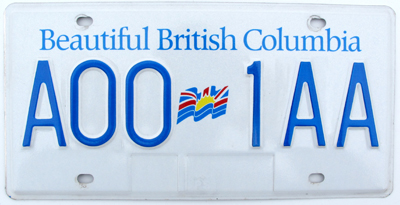 We'll cut to the chase and reveal that, after 6 tortuous months, the Corporation finally relented and coughed up the info that the next series would be A00-0AA!
We'll cut to the chase and reveal that, after 6 tortuous months, the Corporation finally relented and coughed up the info that the next series would be A00-0AA!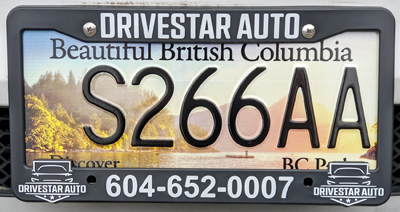
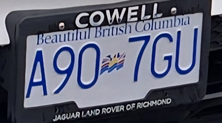
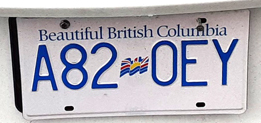
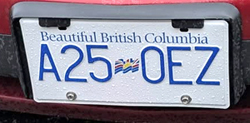
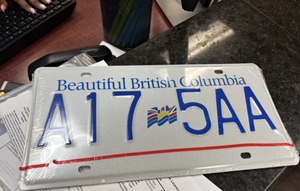
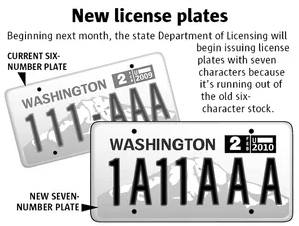 Consider the case of Washington State, which proposed to introduce a new 7-character serial format in 2009 that was to be structured as follows: 1A11AAA.
Consider the case of Washington State, which proposed to introduce a new 7-character serial format in 2009 that was to be structured as follows: 1A11AAA.